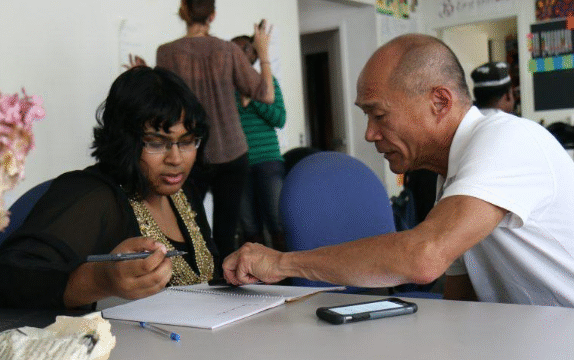In today’s interconnected world, education is no longer
bound by borders. People from different countries are
pursuing learning opportunities beyond their home
regions, whether for professional growth, career advancement, or personal enrichment. One of the key ways to demonstrate achievements from these opportunities is through international learning certificates. These certificates represent the completion of short courses, professional programs, or specialized training offered by institutions that are recognized across different countries. Understanding what they are, why they matter, and how to make the most of them can help learners make informed choices about their education journey.
International learning certificates are credentials awarded after completing specific educational programs that are often designed to be relevant across multiple regions. Unlike local certificates, which may only hold value in a particular country or system, international certificates are structured in ways that make them more widely accepted. For example, certificates in areas like project management, digital marketing, or language proficiency are designed so that employers and academic institutions worldwide can recognize the skills they reflect. These certificates often carry credibility because the organizations offering them follow global standards.
One reason international learning certificates have gained popularity is the growing demand for skills that transcend borders. Businesses are no longer limited to hiring from local talent pools. A company in Europe may employ someone in Asia or North America, and vice versa. This shift makes it important for job seekers to show qualifications that are understandable and respected across various regions. A certificate with international recognition gives both the learner and the employer confidence in the quality and consistency of the knowledge gained. It is a common language in education and employment that helps bridge geographical and cultural differences.
The structure of international certificates can vary depending on the provider and the field of study. Some certificates come from universities with global outreach, while others are issued by professional organizations dedicated to specific industries. Many online platforms also collaborate with universities or companies to offer certificates that hold value worldwide. Most of these programs are designed to be accessible and practical, often lasting weeks or months rather than years. This makes them flexible for busy professionals, students, or anyone looking to upgrade their skills without committing to a full degree program.
International certificates can also serve as steppingstones for further education. Many institutions recognize them as part of credit systems or pathways to advanced study. For example, completing a certificate program in business fundamentals may count toward a future diploma or even a degree if the learner decides to continue. This flexibility allows individuals to progress at their own pace while keeping their options open. It also reduces the risk of starting a lengthy program without being sure of long-term goals, since certificates provide immediate value as well as future opportunities.
Employers value international learning certificates for several reasons. First, they show that a candidate has taken initiative to gain additional knowledge outside of traditional schooling. This proactive attitude often signals motivation and adaptability. Second, certificates offer evidence of specific skills that may not be covered in a general degree program. For instance, while someone may have studied computer science, a certificate in cybersecurity or cloud computing demonstrates focused expertise. Finally, the international aspect ensures that the qualification is not limited to local standards, which is particularly helpful for companies that operate globally.
For learners, the benefits go beyond employability. International certificates can also boost confidence by affirming that one’s skills meet global benchmarks. They provide access to communities of learners from different backgrounds, creating opportunities to share experiences and perspectives. This networking aspect can be valuable for building collaborations, finding mentors, or exploring new professional paths. In some cases, completing a certificate may also qualify someone for professional memberships or industry recognition, adding another layer of credibility.
When considering an international certificate program, it is important to evaluate the reputation of the issuing organization. Not all certificates carry the same weight, and learners should check whether employers or institutions in their field recognize the program. Accreditation, partnerships, and reviews from past participants can provide useful guidance. Cost, duration, and learning format are also practical factors to think about. Some certificates may require exams or project work, while others focus on coursework alone. Aligning these requirements with personal goals and schedules ensures a better learning experience.
Technology has made international certificates more accessible than ever. Online platforms allow people to enroll in courses from universities or professional bodies located thousands of miles away. This convenience means that someone working full-time in one country can study at night or on weekends and earn a certificate recognized globally. The ability to learn remotely also reduces costs related to travel and living abroad, making international credentials more inclusive for a diverse range of learners. In many cases, digital certificates can be shared directly on professional networking sites, making them visible to employers almost instantly.
The value of international certificates is not limited to specific industries. While technology, business, and languages are common areas, there are also certificates in healthcare, education, design, and other fields. Each program is crafted to address the unique challenges and opportunities within its sector. For example, a teacher might pursue an international certificate in inclusive education to gain updated strategies that can be applied in classrooms anywhere in the world. A healthcare worker could earn a certificate in global public health to enhance their ability to respond to challenges that cross national boundaries. This versatility shows that international certificates are not just for career changers or job seekers but also for professionals aiming to enrich their current practice.
Of course, international certificates should be seen as part of a broader learning journey rather than a final destination. Knowledge and skills continue to evolve, and certificates provide steppingstones rather than permanent endpoints. Lifelong learning remains essential, and international certificates make it easier to stay updated while maintaining credibility. They are especially useful for those who want to remain adaptable in fast-changing job markets.
In conclusion, international learning certificates are powerful tools for learners and professionals alike. They provide globally recognized evidence of skills, enhance career prospects, and open doors to further study. With flexible formats and growing accessibility, they offer practical ways to keep pace with a changing world. By carefully selecting reputable programs and aligning them with personal or professional goals, anyone can benefit from the opportunities these certificates create. In a world where education increasingly transcends borders, international certificates represent both recognition and readiness for global participation.






